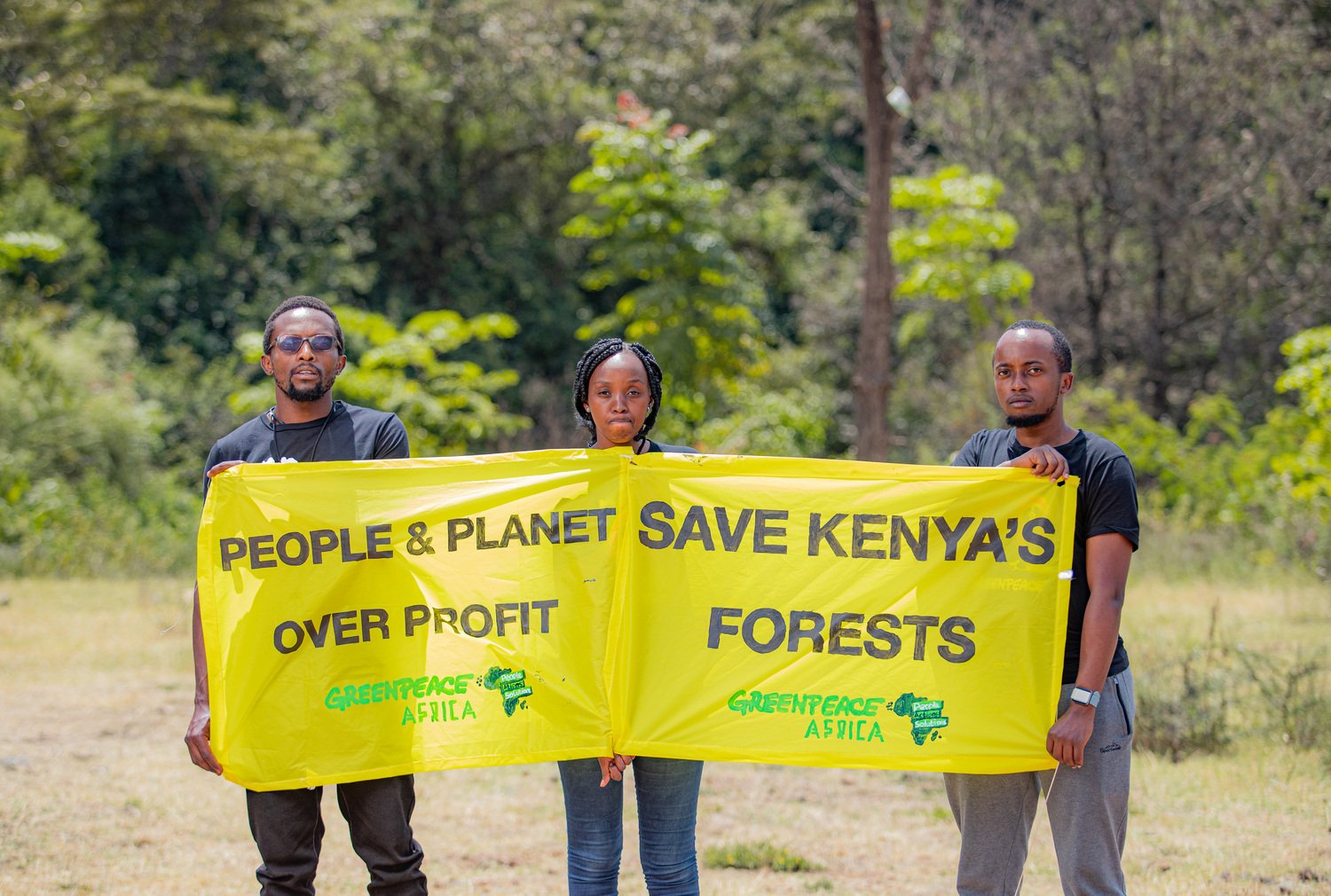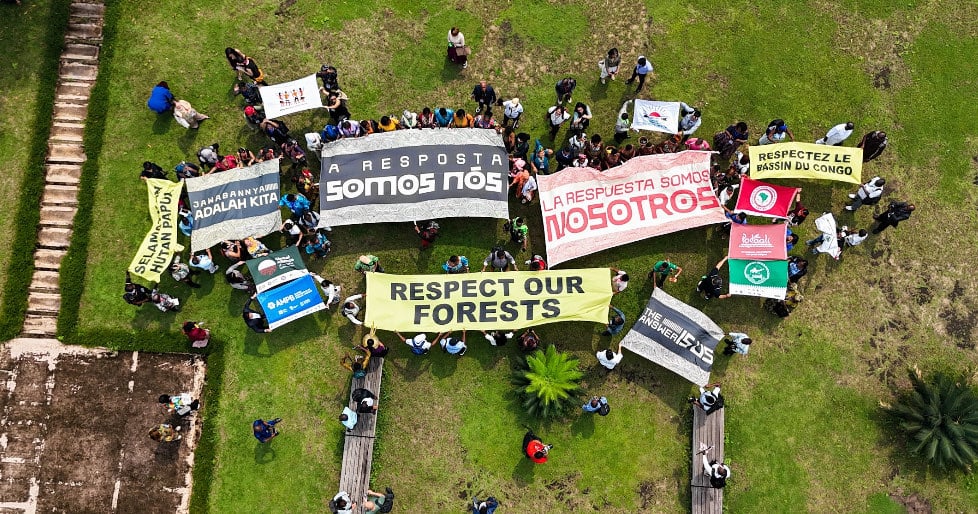Last month, while on my way to Mintom – South Region of Cameroon, for the annual Baka festival celebrations, we had a car breakdown due to the poor state of the road. This got me thinking about the socio-economic impact of land grabbing and deforestation by agro-industries like SudCam on the indigenous communities, who do not get any benefits from such unsustainable practices.
These indigenous communities are recognized as the first inhabitants of the forest areas in Cameroon. They are divided into three large ethnic groups: Baka, Bakola / Bagyeli and Bedzang. The Baka, the most numerous are located in the South and East Regions of the country and they rely on their immediate environment, the forest, for their livelihood. Their interest in protecting the forest positions them as key stakeholders in forest and biodiversity conservation initiatives.
The 4th edition of the Baka festival, which took place from the 25th to 31st March started with the construction of “Mongolos” (Baka huts) with leaves and branches from the forest, a unique experience in my life. The opening ceremony was led by Elders of the Assok community and the Senior Divisional Officer of the Dja et Lobo Division. The Elders conducted a protection ritual asking for permission and blessings from their ancestors to guard the site and welcome visitors to the living museum. These rituals are believed to motivate the appearance of the forest spirit- “Ijengi”.
There were spectacular dance performances including Mr Wax and Leo on a beautiful stage set to highlight the importance of forest and biodiversity and I also had the opportunity to be a panel member on a roundtable discussion with some chiefs and community leaders. They shared testimonies with other environmental stakeholders on how the forest is useful to their lives. They also highlighted the negative impacts of land grabbing and deforestation caused by the bad practices of sudcam and other so-called “development projects” in the region. It also became clear during this discussion that indigenous people are neither consulted nor invited to give their prior consent for the process of land allocation.
It was very disturbing to hear indigenous people talk about their land taken away and their forest destroyed by agro-industries like Sudcam and HeveCam. They are also not involved in the ongoing discussions related to the forest policy and land tenure reforms in Cameroon. The reality is that “economic development” is often prioritised over Indigenous concerns and rights. I think it is high time for the government to put an end to this practice.
As I stood in the forest and looked at the crowd that joined the Baka people to celebrate, my hope was that especially the Administrative authorities would take the time to listen, understand better the life of indigenous communities and the importance of the forest to them. This could eventually awaken the spirit of humanity in our decision-makers to stand with the indigenous people to defend their rights and conserve our forests.
Our world is characterised by destructive values and politics which seem to reign supreme and we understandably feel frustrated, angry, and heartbroken. I had a sense of simplicity and togetherness with the Baka people as they expressed their values, forest wealth and above all, the importance of their culture. The Baka communities hope to reinforce their identity and protect their land and forest through this festival. I hope this culture will remain alive and protected and not disappear for the sake of filling the pockets of foreign corporations and selfish individuals.
The Baka festival offered me an opportunity to opening my heart and soul to such a beautiful culture and richness in the forest. All stakeholders, including the Cameroonian government, donors and NGOs should stand together with indigenous communities to protect the forest against powerful and self-centred investors.




Discussion
Courage I realy apreciate this efforts put in place by Greenpeace to Careing about our environnement. Fighting against déforestation . Let instead thing of caring for our plants and no that is our nature our life .
Thank you for your support Nyabeyeu.